Table of Contents
The era of digitization has made a huge change in the education sector. Different government and non-government bodies are taking steps to enhance the rooting of digital initiatives in education. The National Mission on Education through ICT (NMEICT) is a major initiative by the Ministry of Education to infuse digital education solutions to improve access to quality content and also improve learning outcomes. The use of digital tools is preferred by academicians because of the following factors:
- Affordability
- Inclusiveness
- Employability
- Quality
These digital initiatives have not only improved the teaching-learning process but also enhanced the retention power of the learners and made them understand concepts easily.
What is NMEICT
The National Mission on Education through Information and Communication Technology (NMEICT) is a Centrally Sponsored Scheme launched by the Ministry of Human Resource Development (MHRD), Government of India, in 2009 to leverage the potential of ICT in teaching and learning process for the benefit of all the learners in Higher Education Institutions in any time any where mode.
The Ministry of Education is committed to continuing to support the NMEICT in order to further enhance the use of ICT in higher education. The Mission is expected to play an important role in achieving the Government’s goal of making India a global leader in education.
Major Digital Initiatives in Higher Education are:
SWAYAM
SWAYAM (The Study Webs of Active Learning for Young Aspiring Minds) is an integrated platform for offering online courses to young learners that are cost-saving. Below are the major facts about SWAYAM
| Developed in | 9th July 2017 |
|---|---|
| Developed by | The Ministry of Education (formerly the Ministry of Human Resource & Development) |
| Aim | Its aim is to provide quality education via e-learning courses to millions of students with ease |
| Principles | Access, Equity, and Quality |
| Grades covered | From 9th to postgraduation courses |
| Course coordinators | There are 9-course coordinators: NPTEL, AICTE, UGC, NCERT, NIOS, IGNOU, IIM-B, CEC, NITTTR |
| Total Courses | 2,150 ( As of December 2022) |
| Website | https://swayam.gov.in/ |
SWAYAM Prabha
SWAYAM Prabha is an initiative providing 32 High-Quality Educational Channels through DTH (Direct to Home) across the country on a 24X7 basis. It has curriculum-based course content covering different disciplines. This is mainly strived at making quality learning resources accessible to distant areas where internet connectivity is a big challenge. It serves via a GSAT-15 satellite.
National Digital Library (NDL)
The National Digital Library of India (NDU) is an initiative and platform to devise a virtual repository of learning resources with a single-window search facility More than 3 crore digital resources are available on this platform.
- There are more than 50 lakh students registered with this platform.
- The mobile app of NDL helps users to access resources with ease.
- Content covers all the major domains of knowledge.
- It is a 24/7 umbrella digital library
E- VIDWAN
It provides relevant information about the expert’s background, contact address, experience, scholarly publications, skills and accomplishments, researcher identity, etc. It provides information about subject experts to potential collaborators, peers, and research scholars around the country. It helps to communicate directly with experts who have the expertise that research scholars require.
National Academic Depository (NAD)
The National Academic Depository (NAD) is an initiative to provide an online storehouse of all academic awards. It is a 24X7 online storehouse of all academic awards viz. certificates, diplomas, degrees, mark sheets etc. duly digitised and lodged by academic institutes/boards/ assessment bodies. NAD not only assures easy access to and retrieval of an academic award but also validates its authenticity and effective storage. National Academic Depository comprises two interoperable digital depositories viz. CDSL Ventures Limited (CVL) and NSDL Database Management Limited (NDML).
Free and Open Source Software for Education (FOSSEE)
FOSSEE is a project promoting the use of open-source software in educational institutions. It is developed by IIT, Bombay. It provides instructional material, such as spoken tutorials, documentation, such as textbook companions, and awareness programmes such as conferences, training workshops, and Internships.
About 2,000 college students and teachers have partaken in this activity & close to 1,000 TBCs (textbook companions) have been devised in Scilab and made it open for free download of various software.
Virtual Lab
This Project is to design fully interactive labs with simulated environments to perform experiments, collect data, and answer questions to evaluate the understanding of the knowledge acquired in order to achieve the objectives of modern education. There are about 225 such labs. It is essential to develop virtual laboratories with state-of-the-art computer simulation technology to create real-world environments and problem-handling capabilities.
Shodhganga
Shodhganga is an open-access ETD (Electronic theses depository) of Indian theses and dissertations. It helps to avoid duplication of research. The work of the theses and dissertation. Some important facts about shodhganga are:
- It is a digital repository of theses and dissertations submitted to universities in India.
- Collection of 3880+ theses and dissertations
- 70 universities are tied together and 62 universities are the contributors.
- Submission of PhD theses is mandated via UGC vide Gazette Notification (Minimum Standards & Procedures for the award of M.Phil/ PhD Degree, regulation, 2009)
Shodhgangotri
“ShodhGangotri” is an initiative for research scholars/research supervisors in universities where they can deposit an electronic version of approved synopsis provided by research scholars to the universities for registering themselves for the PhD programme. This repository reveals the trends and directions of research being conducted in Indian universities. Moreover, it avoids duplication of research.
E- Shodhsindhu
The e-ShodhSindhu initiative provides more than 15,000 international electronic journals and e-books to all higher educational institutions. This allows access to the user towards the best educational resources in the world via digital mode. This scheme has been implemented by INFLIBNET, Gandhinagar, Gujarat.
Benefits of Digital Initiatives in Higher Education
The benefits of digital initiatives in higher education include:
- Increased access to education: Digital initiatives can help to make higher education more accessible to students who live in rural areas or who have other barriers to attending traditional classes.
- Improved quality of learning: Digital initiatives can provide students with a more personalized and engaging learning experience.
- Greater affordability: Digital initiatives can help to make higher education more affordable by reducing the cost of textbooks and other materials.
- Increased efficiency: Digital initiatives can help to streamline administrative processes and free up faculty time to focus on teaching and research.
Download Digital Initiatives in Higher Education Study Notes PDF
The direct link to Download Digital Initiatives in Higher Education Study Notes has been provided below. Candidate must click on link to know more details about the Digital Initiatives in Higher Education.
Download Digital Initiatives in Higher Education Study Notes PDF
| Read more UGC NET Notes | |
| UGC NET Study Notes for Paper 1 | UGC NET Commerce Notes PDF |
| UGC NET 2024 | UGC NET English Literature Notes |

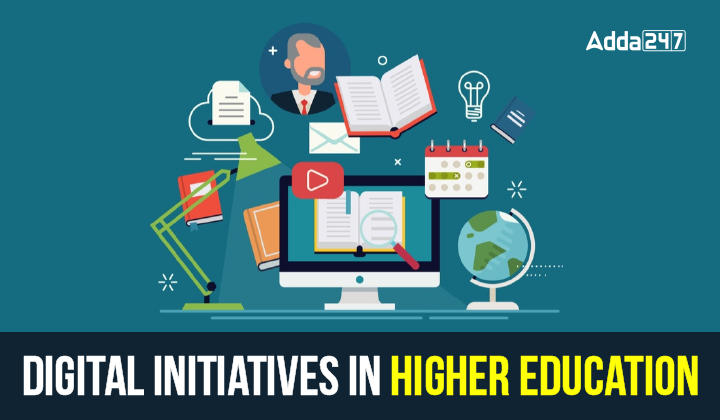
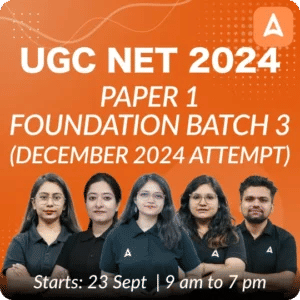

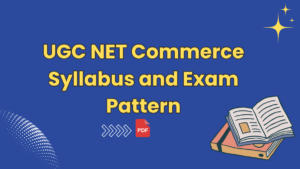 UGC NET Commerce Syllabus 2025 PDF Downl...
UGC NET Commerce Syllabus 2025 PDF Downl...
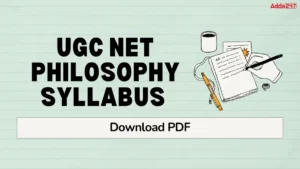 UGC NET Philosophy Syllabus 2025 PDF Dow...
UGC NET Philosophy Syllabus 2025 PDF Dow...
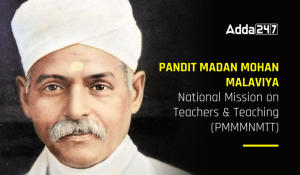 PMMMNMTT for NEP 2020, Check details Her...
PMMMNMTT for NEP 2020, Check details Her...














